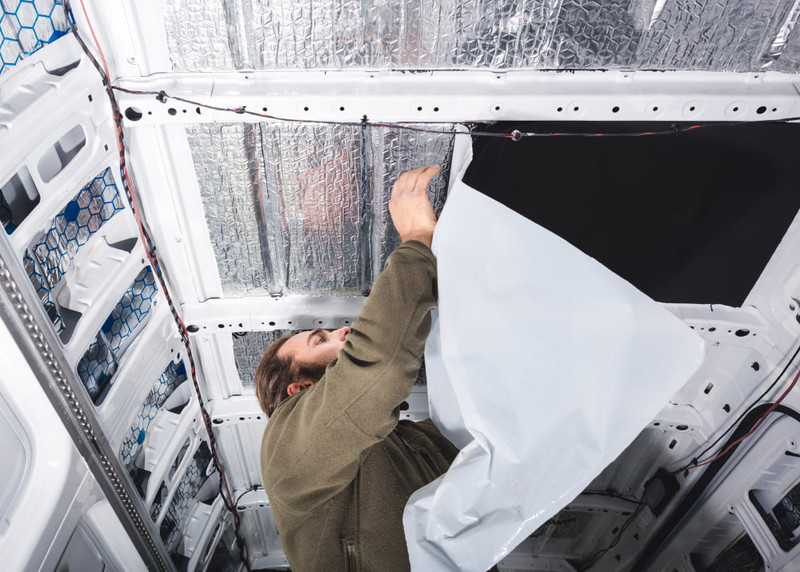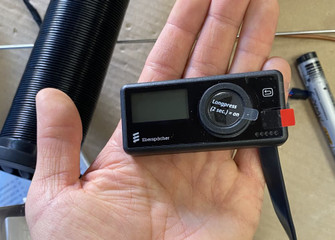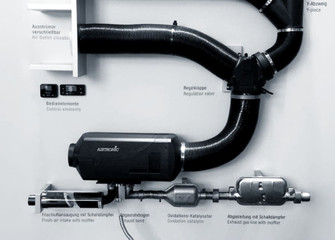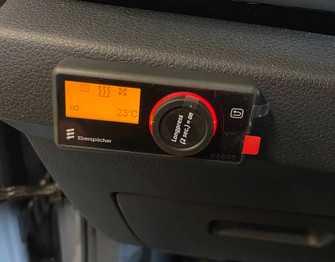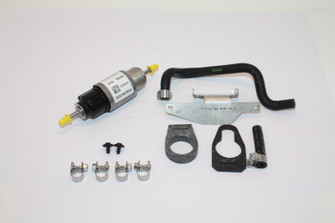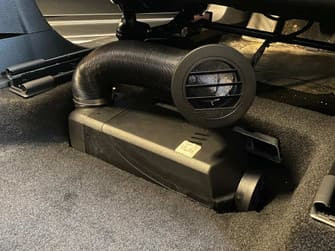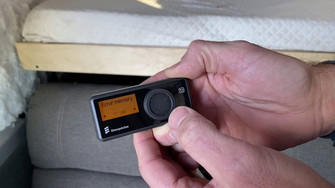Complete Guide to Van Insulation
Posted by Heatso on 11th Apr 2023
Proper insulation is key to maintaining a comfortable temperature inside your van, no matter how hot or cold it is outside. Insulation can also help to reduce noise and vibration while driving, making your journey more enjoyable. In this guide, we will cover everything you need to know about van insulation.
COMPLETE GUIDE TO VAN INSULATION: CHOOSING THE BEST INSULATION FOR YOUR RV
Proper insulation is key to maintaining a comfortable temperature inside your van, no matter how hot or cold it is outside. Insulation can also help to reduce noise and vibration while driving, making your journey more enjoyable.
In this guide, we will cover everything you need to know about van insulation, from the different types of insulation materials available on the market to the step-by-step process of insulating your van. By the end of this guide, you'll have all the information you need to choose the best insulation for your van conversion, install it correctly, and enjoy a comfortable and efficient home on wheels.
ON THIS PAGE
FACTORS TO CONSIDER WHEN CHOOSING INSULATION MATERIALS
When it comes to selecting the right insulation materials for your van conversion, there are several factors to consider. Here are some key things to keep in mind:
Types of insulation materials available on the market
There are many types of insulation materials available on the market, each with its own pros and cons. Some of the most common types of insulation materials used in van conversions include fiberglass, foam board, spray foam, and natural fibers like wool and cotton.
Pros and cons of each type of insulation
Each type of insulation material has its own unique set of advantages and disadvantages. For example, fiberglass is relatively inexpensive and easy to install, but it can irritate the skin and eyes if not handled properly.
On the other hand, natural fibers like wool and cotton are eco-friendly and offer excellent thermal and sound insulation properties, but they can be more expensive and harder to find.
Ease of installation and availability
Some insulation materials are easier to install than others, and some may require professional installation. It's important to consider your level of DIY skills and the availability of materials in your area when choosing insulation materials for your van conversion.
Cost considerations
The cost of insulation materials can vary widely depending on the type of material, the amount needed, and the brand. It's important to consider the cost of insulation materials in relation to your overall budget for the van conversion.
HOW TO INSULATE YOUR VAN: STEP-BY-STEP GUIDE
Insulating your van is crucial in the conversion process to help you stay comfortable in all weather conditions. As you’ll see, using a pre-cut AutoPly insulation kit will greatly reduce the time and hassle of insulating your van. Here's a step-by-step guide to insulating your van:
1. Gather Your Materials
Before you start insulating your van, you'll need to gather all the necessary materials. This includes insulation materials like the AutoPly pre-cut woven insulation kit, a utility knife, measuring tape, gloves, and safety glasses.
2. Measure and Cut Insulation
If you're not using a pre-cut insulation kit like the AutoPly, you'll need to measure and cut your insulation materials to fit the walls and ceiling of your van. Be sure to wear gloves and safety glasses when cutting insulation materials. With AutoPly, you can skip this tedious and time-consuming step and go straight to applying the precision-cut insulation to the walls.
3. Apply Adhesive
If you're using a pre-cut insulation kit like the AutoPly, simply peel off the liner and carefully press the adhesive to the wall of your van - it’s that easy. If you're using other insulation materials, you may need to apply an adhesive to the walls before attaching the insulation.
4. Ventilation and moisture management
Proper ventilation is important to prevent moisture buildup inside the van, which can lead to mold and mildew. Installing a fan like the MaxxAir or an AC like the Plein-Aircon is important to allow for proper airflow. Additionally, some insulation materials may require a vapor barrier to prevent moisture buildup. You can learn more about choosing the right AC in our in-depth guide on air conditioning and ventilation.
RELATED PRODUCTS
NOISE-CANCELLING INSULATION: A GAME-CHANGER FOR VANLIFE
One of the biggest challenges of vanlife is dealing with noise. From traffic and wind to noisy neighbors at campgrounds, unwanted noise can disrupt your sleep and make it hard to relax. That's where noise-canceling insulation comes in.
What is noise-canceling insulation?
Noise-canceling insulation is a type of insulation that is specifically designed to reduce the amount of noise that enters the van. It works by absorbing sound waves and preventing them from traveling through the van's walls, floor, and ceiling.
Benefits of noise-canceling insulation
The benefits of noise-canceling insulation for vanlife are many. First and foremost, it can help to create a more peaceful and comfortable living space by reducing outside noise. This can lead to better sleep and a more relaxing environment.
In addition to improving your quality of life on the road, noise-canceling insulation can provide practical benefits. For example, it can improve the sound quality of your entertainment system by reducing outside noise. It can also help to protect your van's interior from vibrations and rattling caused by rough roads.
Types of noise-canceling insulation
There are several types of noise-canceling insulation available on the market, each with its own set of advantages and disadvantages. Some popular options include mass-loaded vinyl, acoustic foam, and spray-on sound deadeners. AutoPly woven fabric insulation provides both thermal and acoustic insulation, ensuring your cabin is warm and quiet.
CONCLUSION
Whether you're planning to use your van for short weekend getaways or as a full-time residence, proper insulation will help keep you warm in the winter and cool in the summer. High-quality pre-cut insulation kits like the AutoPly can save you time and effort during installation.
By following this step-by-step guide to insulating your van and selecting the best materials for your needs, you can create a cozy and comfortable home on the road.
